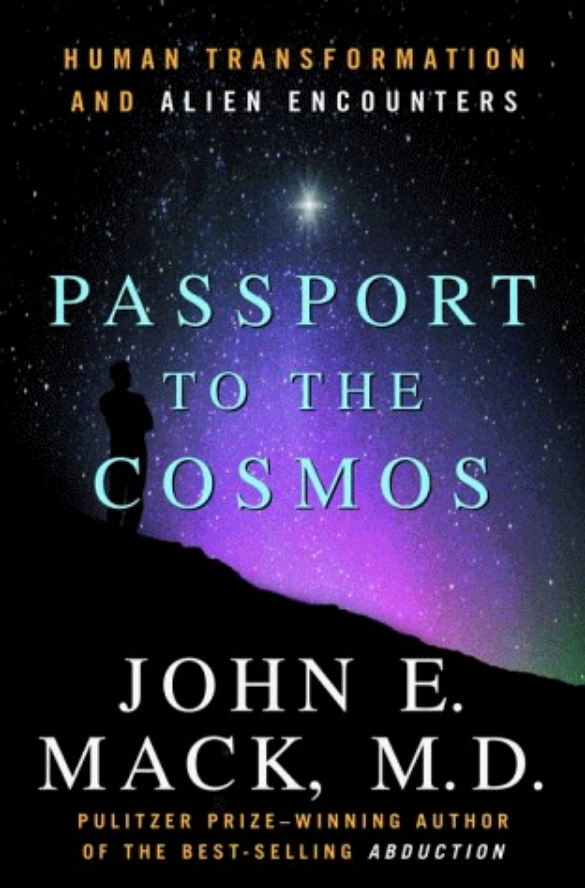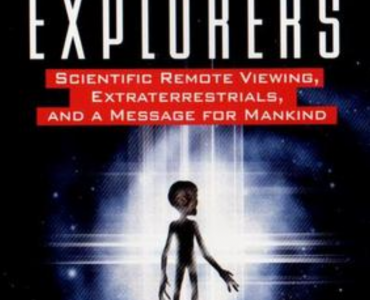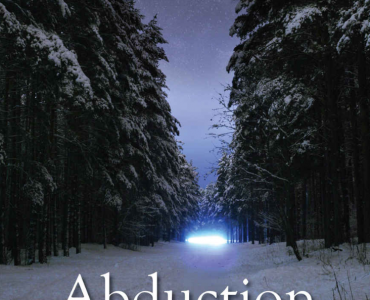Pros
- Provides some possible explanations for abductions collected from numerous abductees
- Author isn’t afraid to make some claims and statements that would otherwise be scoffed at
- A lot of research is referenced in the book that allows readers to hunt down additional resources for reading
- Covers a range of information from light beings to grays to hybrids, with a bit of information on each
Cons
- The book leaves readers with a feeling of missing puzzle pieces since some information, like those regarding the light beings, are so sparse as to leave readers wanting more
Passport to the Cosmos Review
Anyone who has read Abduction by John E. Mack knows how detailed and rationale he is in his writing. Where Abduction details the what regarding the abductions, Passport to the Cosmos attempts to provide readers with a more thorough explanation of why this his happening all around the world.
Mack’s background and education make him a very serious researcher. In fact, that he’s writing about these topics at all says a lot about his courage given the hit to his reputation as a doctor and scientist. So those reading this book shouldn’t be too quick to dismiss the contents.
I’m sure one of the questions foremost on the minds of people reading into this phenomenon is why are they doing this. Then that’s followed by who is doing this. Mack addresses these significant questions in Passport to the Cosmos, and he uses the experiences of the abductees, as well as research from other credible people in the field, to support some of the discoveries he has made through his work. The cases he discusses aren’t limited to just the United States either. The people affected come from all over the world.
What readers will learn as a result is that a range of highly technical and highly advanced beings are interested in humans for both selfish and selfless reasons. The variety of beings, each with their own motivations, explains the range of abduction experiences that people report. It’s because of the differences in the aliens that abductees have such varied experiences that range from images of doom to images of prosperity. As the book progresses, the discussions require readers to be more open to different ideas as some of the explanations or claims may seem too fantastic to be true.
What’s interesting are the chapters regarding Native Americans and their beliefs about spirituality. These chapters particularly locate the whole abduction and UFO experience not only in modern times since Arnold’s coining of the term “flying saucers,” but they also locate some of the interactions with aliens in the past. Mack’s case discussions are sure to be controversial for many, as the implications are that the visitors may have been involved for quite some time in human history.
Mack’s discussion of dimensions, light beings, aliens, and hybrids feels at times almost like a collection of alien conspiracy theories. To see it all together feels a little disconcerting considering his background, but what the book illustrates is the need for actual investigations into the principles that make these phenomena real. And in investigating these events, perhaps we’ll make discoveries that will help people better understand their place in the universe.
Passport to the Cosmos by John E. Mack Still surveys and discusses cases of abductions and provides some explanations as to the motivations of the abductors. I couldn’t help but feel that there was still something missing. There’s just not enough information about the beings, and what little information or hypotheses Mack provides us just leaves readers desperate for more. More importantly, they are obviously interfering in the lives of potentially millions of people, so why not just come out already?
Read a review of other similar books.


